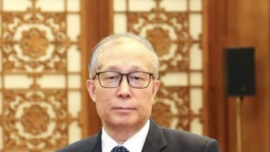Prior to the city’s new Secretary for Economy and Finance Lionel Leong Vai Tac stressing on Friday that the government would reinforce the monitoring of gaming development, the Gaming Inspection and Coordination Bureau (DICJ) had already issued a notice that a new measure imposing further restriction on setting up a VIP room account for gaming promoters will be implemented on January 1.
The notice, which according to industry sources was one that was sent by the gaming regulator DICJ to the VIP gaming promoters here on December 19, states that gaming promoters have to present a certificate of criminal record – one free of offences – before setting up an account for their gambling clients. This new measure would apply from January 1.
“This could really impose a big impact on new VIP gaming clients, especially those from mainland China as the new measure would mean more inconvenience for them to have an account here to issue commissions [to promoters] or withdraw gaming capital, and they can only rely on local gaming promoters,” a VIP gaming industry source said, adding that the requirement of the criminal record certificate also applies to VIP operation collaborators from outside Macau.
While the new measure could deal a further blow to weakening VIP gaming revenue, casino sources Business Daily spoke to believe that the act was a long-term measure meant to assist local law enforcement units’ scrutiny of capital flows into the territory.
The new measure would be yet another addition to the government’s arsenal of curbs on the flow of illicit funds through Macau. Hong Kong newspaper South China Morning Post reported on December 17 that a coordinated security drive would give China’s Ministry of Public Security electronic access to all transfers through the China UnionPay bank payment card system to identify suspicious transactions, citing unidentified sources.
The Secretary for Economy and Finance spoke briefly to media on Friday, saying that the government would seek to regulate the development pace of gaming industry here, and continue to monitor the flow of money through the gaming hub.
“For our upcoming tasks, I believe that to regulate and monitor the [gaming] sector is very important,” Leong told media on Friday.
“We’ll seek to regulate the development pace [of casinos] so that they grow at a reasonable scale,” Mr. Leong said. “We’ll also monitor the industry, including the in and outflow of the capital involved, and see to their human resource allocation – with all of these I believe that can assist us in monitoring the industry better, and making sure that the sector is healthy.”
Mr Leong, who has succeeded Francis Tam Pak Yuen, also noted on Friday that his team would work on analysing the non-gaming elements that Macau’s six casino concessions have developed so far – an important factor in the government’s review of the renewal of the concessions.
Macau’s six casino concessions expire from 2020 to 2022.
“Of course, there is not an international standard in defining what a non-gaming element should be but it would not hinder our works,” Mr. Leong said, noting that his team would adopt a “statistical” approach in analysing the non-gaming elements the six casino concessions have developed but did not elaborate further.
“We’ll reflect to society how the non-gaming elements have been developed – whether they have grown more diversified, what has been the direction of this development and how fast it is growing,” Mr. Leong said.























